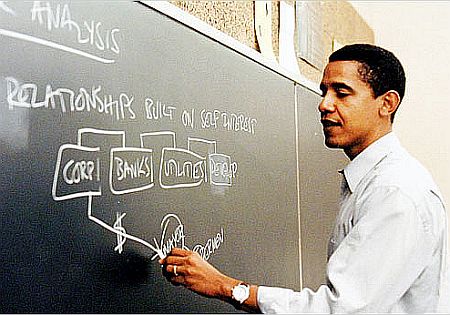21 Pragmatist

“Get ‘er done!”
Card messages in the Illuminated position.
+ Practical
(minimalist, functional, efficient, flexible, systematic, expedient, utilitarian, adaptive )
- “It must be” the one that works or otherwise forget it. Be practical and get the job done. But movement is the intention. If you have a log jam what steps could you initiate to get it moving again? Hint: do nothing and the real issue floats to the surface!
- If one option doesn’t work, then try another one. Practicality assimilates whatever needs to continue movement to the desired outcome. Don’t make any deals now that you can’t pay for right away. Emphasis function over form.
- Do the best with what you have. Find the quickest path to completion from there.
Quotes signifying this pole
- “Some people are pragmatists, taking things as they come and making the best of the choices available. Some people are idealists, standing for principle and refusing to compromise. And some people just act on any whim that enters their heads. I pragmatically turn my whims into principles.” Bill Watterston – Calvin & Hobbes
- “Pragmatism asks its usual question. “Grant an idea or belief to be true,” it says, “what concrete difference will its being true make in anyone’s actual life?” William James
Card messages in the Shadow position.
+ Dogmatic
(functionary, narrow, Inflexible, Pedantic, particular, fussy, fixated, codified, familiar, accustomed, persnickety,)
- Occam’s Razor is based upon the dogma that the simplest explanation is usually the right one. Nice idea, often not true in reality. Is dogma constricting knowledge into something that fits a mold or restricts options? Stop making the square peg fit into the round hole! Try something outside your comfort zone.
- Sticking with the “straight and narrow” might be a sound precept except when you drive your car into a wall. Learn how to change course and take a different turn.
Quotes signifying this pole
- “The self-styled practical man of affairs who pooh-poohs philosophy as a lot of windy notions is himself a pragmatist or a positivist, and a bad one at that , since he has given no thought to his position.” Alan Watts
- “Fools ignore complexity. Pragmatists suffer it. Some can avoid it. Geniuses remove it.” Alan Perlis
Relevance in the Michael Teaching
As the Assimilative Attitude, Pragmatist (ism) is the means by which we distill from the mind not truth, but functionality. Essence chooses the Pragmatist Overleaf when it desires a Personality to be interested in achieving results more than pursuing an ideal. Retrospectively, this Attitude may facilitate the integration and completion of unfinished or unrefined tasks from other lifetimes. In such a case, a Pragmatist may be bogged down with various notions and repetitive habits which are in need of a solvent. You might call it the instinctive dogma of repetition and memory.
 Whenever a Pragmatist, or a self-styled or self proclaimed one is on the scene, it is difficult not to notice their tendency to come up with solutions which supposedly work; usually for them. Yet, a positive pole Pragmatist notices specifics and integrates those variations into a patterned approach thus tailoring whatever method it proclaims as efficient or in the modern era “cost effective”. Incorporating a general method to specific applications that similar problems could are handled in the same way. The Pragmatist may be quite consumed more with the appearance of some narrow definition of efficiency than the long term efficacy or equity of his approach. In other words, what is defined as Pragmatic may be very skewed, subjective and reductionist; especially when expressing in the negative pole.
Whenever a Pragmatist, or a self-styled or self proclaimed one is on the scene, it is difficult not to notice their tendency to come up with solutions which supposedly work; usually for them. Yet, a positive pole Pragmatist notices specifics and integrates those variations into a patterned approach thus tailoring whatever method it proclaims as efficient or in the modern era “cost effective”. Incorporating a general method to specific applications that similar problems could are handled in the same way. The Pragmatist may be quite consumed more with the appearance of some narrow definition of efficiency than the long term efficacy or equity of his approach. In other words, what is defined as Pragmatic may be very skewed, subjective and reductionist; especially when expressing in the negative pole.
Famous Examples
Barack Obama, Dick Cheney, David Suskind, Sybil Shepherd, George Bush Sr., Marshal McLuhan, Angela Lansbury, Ho Chi Min, Dustin Hoffman, Lily Tomlin,
Cultural Relevance
Change is inevitable, how we go about it and whether we do it effectively is another matter. Pragmatism as a philosophical approach is based on this premise. Reviling only inefficiency and wasted motion, it is often more concerned with how to manage change rather than which direction it should take. Bureaucrats depending upon their life perspectives and values exemplify this attitude in the most institutional way.
On the other end of the scale, short cuts for short term gains are justified in the name of practicality. Somehow “things will handle themselves” or “it will all work itself out” becomes default buzz phrase justification and then excuses for slipshod but fast acting solutions that achieve movement toward something the user wants. Wall Street in the financial hey day prior to the Crisis of 2008, was negative pragmatism beating the drum and chanting the dogma of neo-liberalism with a bet on and against every investment mentality that seemed to cover every contingent: A dream come true until the nightmare of realism set in to pop the inflated bubble. So much for utilitarian values when it came to government acting as the nursemaid healing the financial sector; inefficiency was rewarded with bailouts. While homeowners, investors, small business owners, and people who lost jobs and pensions, were left holding the bag on Main Street.
 The hypocrisy illustrates how anything can be placed under the heading of pragmatic while never having to be efficacious, streamlined, monitored, or authentically objective in a “bottom line” way or implemented in a businesslike manner. The rush to proclaim oneself as practical, at the highest levels of public debate, serves more frequently as a cover for exploitation and doctrinaires that applied competence and impartiality. What are called principles, usually hide a worn out, rehashed tradition that failed in its time of origination, but gained some sentimental or substantial support for those who gained by it. Pragmatism has devolved into a state of managed chicanery within which few benefit while imposing rules, austerity and one-size fits all solutions upon others.
The hypocrisy illustrates how anything can be placed under the heading of pragmatic while never having to be efficacious, streamlined, monitored, or authentically objective in a “bottom line” way or implemented in a businesslike manner. The rush to proclaim oneself as practical, at the highest levels of public debate, serves more frequently as a cover for exploitation and doctrinaires that applied competence and impartiality. What are called principles, usually hide a worn out, rehashed tradition that failed in its time of origination, but gained some sentimental or substantial support for those who gained by it. Pragmatism has devolved into a state of managed chicanery within which few benefit while imposing rules, austerity and one-size fits all solutions upon others.
In the modern age, political triangulation is the way that several recent presidents have attempted to escape party bickering by placing themselves in a third, outside position. Attempting to take the stage as the reconciler, the practical alternative to polarized positions, politicians do what makes their positions more ambiguous and the American system of government less effective, they confuse the issue by pretending to be something they are not. Why? Because, winning is more important than principles. That is the credo for the Young Soul Era in which we live.
Your Attitude might be a Pragmatist if…
- Often, I see the key sticking point in a situation.
- I can usually come up with the easiest way to do something.
- I like doing things in the most simple way.
- I believe that I am efficient in most of what I do.
- Inefficiency really bothers me in whatever is happening.
- In a given situation, I can assume the point of view of someone else in order to counterbalance the situation.
- I may not have any specific position, but how things get done and way it sounds to me must be consistent.


